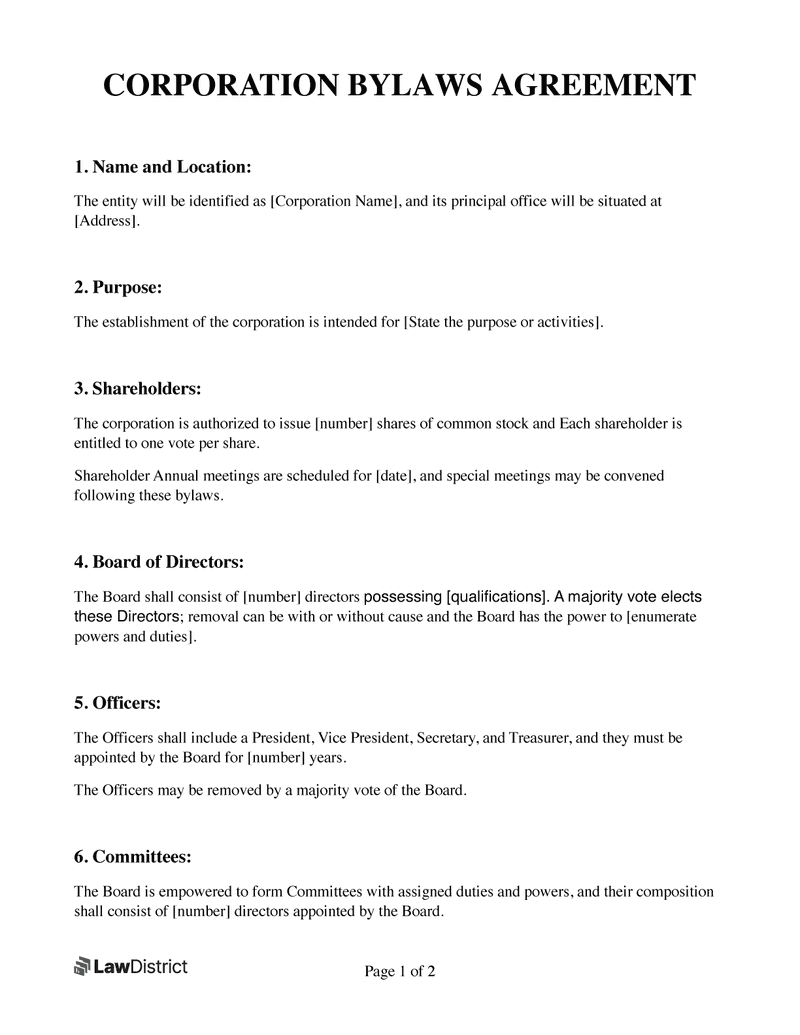Corporate bylaws is a vital legal document for any corporation, serving as the foundation for internal governance and management.
Bylaws, typically established by the board of directors at the time of incorporation, delineate the company's operational rules, responsibilities of directors, shareholders, and officers, and procedures for meetings.
They are crucial for maintaining order and clarity in corporate affairs. Unlike Articles of Incorporation, which establish the corporation's legal existence, Corporate Bylaws offer a detailed framework for how the company will operate and the rights and powers of the shareholders, directors, officers, and employees.
Creating Corporate Bylaws, even when not mandated by state law, is recommended as they articulate the business's operational procedures and ensure alignment among all stakeholders.
These bylaws come into effect upon formal adoption by the corporation’s directors and continue to guide the company's internal management.
While most states require corporations to have bylaws, they vary in terms of specifics and are generally not filed with the state, remaining internal documents.
